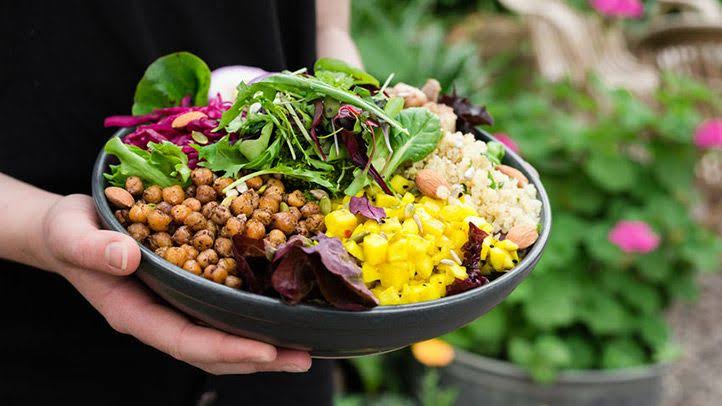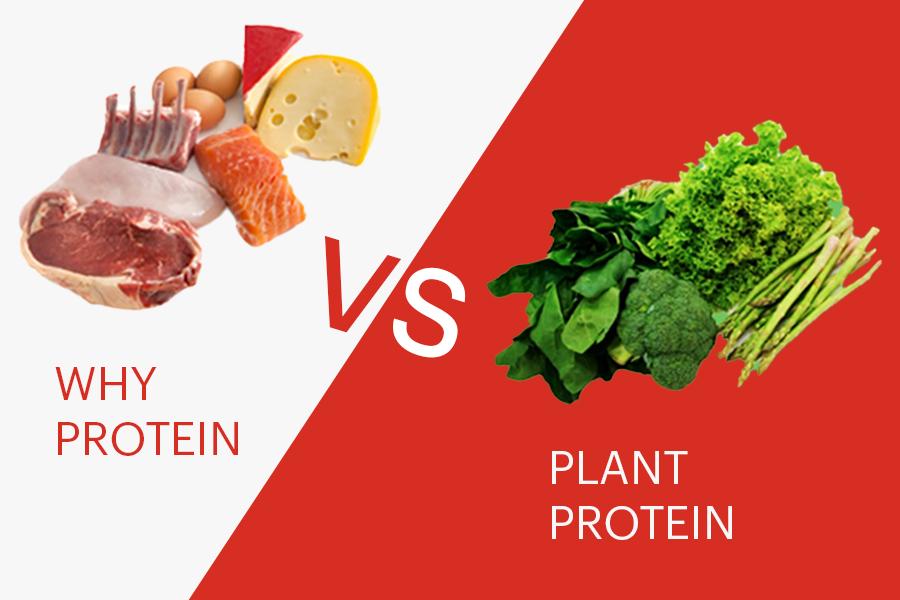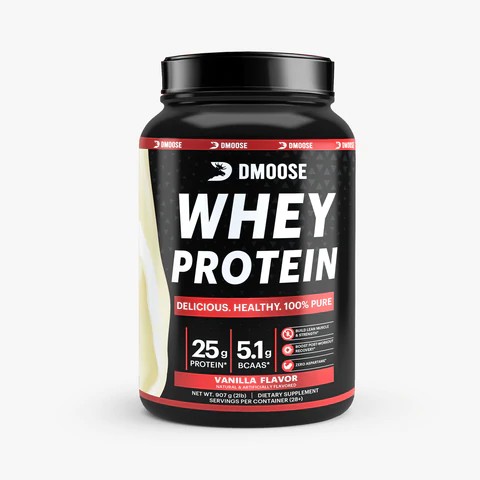[su_note note_color=”#ffe3e6″]This post contains affiliate links. Affiliate disclosure: As an Amazon Associate, we may earn commissions from qualifying purchases from Amazon.com and other Amazon websites.[/su_note]
As someone who is looking to lose weight, you may be wondering which kind of protein powder is best for you. Should you go with whey protein or plant protein?
Protein is the king of macros when it comes to gaining muscle and losing weight. There are numerous benefits that translate into being beneficial for weight loss. There is absolutely no confusion surrounding protein: it’s great to add more protein to your diet. “Beef up” by all means!
However, there are different types of protein out there in the market: which one’s the best, that’s a question?
To help you make a decision, let’s take a look at the differences between whey protein and plant protein.
What is Whey Protein
Whey protein is a type of protein that is derived from milk. It contains all of the essential amino acids that your body needs in order to build muscle. Amino acids are the building blocks of muscles and that’s why whey protein is widely loved in the fitness world.
Whey protein is also very easily absorbed by the body, making it an ideal choice for those who are looking to increase their muscle mass. It powers the body during the workout for improved performance and speed up recovery process.
Whey is highly satiating, which means you won’t be craving snacks after a good whey protein dose. It comes in various flavors too, making it easy to consume.
What is Plant Protein?

Whenever we talk about protein, it’s about animal protein that comes to mind. We hardly think about all the awesome plant foods that also contain protein.
Plant protein is derived from plants such as peas, rice, quinoa, and soy. Plant proteins are not as easily absorbed by the body as whey protein, but they are still a good source of protein.
Plant proteins are also usually lower in calories than whey protein, but whey protein is higher in amino acid profile which are essential for muscle sustenance and consequently for fat loss.
Plant proteins are not complete protein sources: there are always one or more amino acids missing. However one can use a blend to get all nine essential amino acids from plant sources. They are a great choice if you want to reduce your carbon footprint. Plant proteins are more sustainable and environment friendly.
So, which one is better for weight loss? Before we answer the question, let’s dig a little deeper and get to know the two types better.
Importance of Protein in the Body
One will come across conflicting remarks about other macros like carbs and fats, but absolutely none when it comes to proteins. Protein is the uncontested king of a healthy diet.
Proteins are essential nutrients for the human body. They are the building blocks of our muscles, bones, skin and blood. Proteins are also involved in many vital processes in the body, such as metabolism, cell repair and immunity.
Protein is a great hunger buster; it keeps you full for longer which means you won’t be adding more to your caloric intake protein foods in your system.
In addition, protein also helps boost metabolism and burn more calories, ultimately helping in weight management.
A lack of protein can lead to muscle wasting, weakness, fatigue and a host of other health problems. That’s why it’s important to include protein in your diet.
Furthermore, protein is a potent post-injury potion that helps you recover fast. It makes sense how protein would help heal faster being a primary building block of tissues and various organs.
Science debunks myths that assume protein to be bad for bones. In fact studies show that protein, especially animal protein works towards healthy bones. Protein intake is the best thing to do when it comes to firing up the muscle building process in the body because protein is the building block of muscles. More protein means more muscle; it’s that simple!
There are many different types of protein, but all proteins are made up of smaller units called amino acids. The body needs 20 different amino acids to function properly. Some amino acids can be produced by the body, while others can only be obtained from the diet. These “essential” amino acids must be consumed in the diet in order to maintain good health.
Protein foods are typically divided into two groups: animal and plant proteins. Animal proteins include meat, poultry, fish, eggs and dairy products. Plant proteins include legumes (beans and peas), nuts, seeds and grains.
Most people can meet their protein needs by consuming a variety of animal and plant proteins. However, some people may need to consume more protein than others.
Key Differences Between Whey and Plant Protein

While both plant and whey protein are great to up your protein game, they come with different features. There are some important differences that are worth a mention by all standards.
We are going to discuss the most important ones below:
Digestibility
Protein digestibility is a measure of how easily a protein can be broken down and absorbed by the body. It is important to consider digestibility when choosing a protein supplement, as it can impact how well your body is able to use the protein.
Plant proteins are generally less digestible than animal proteins, but there are some exceptions. For example, soy protein is very easily digested by the body.
Whey protein, on the other hand, is one of the most easily digestible proteins available. When choosing a protein supplement, it is important to consider your individual needs and goals. If you are looking for a protein that will be easily synthesized to build more muscle, whey protein may be the best choice for you.
Sustainability
Plant-based proteins are generally considered to be more sustainable than animal-based proteins like whey protein. This is because plant-based proteins require less land and water to produce, and they have a lower carbon footprint than animal-based proteins. Whey protein, on the other hand, requires more land and water to produce, and it has a higher carbon footprint.
Amino Acid Profile
Whey protein is a complete protein, meaning it contains all nine essential amino acids. Whey is also rich in branched-chain amino acids (BCAAs), which are important for muscle growth and recovery.
Plant proteins are not complete proteins, but they can still provide all the essential amino acids if you eat a variety of different plant-based foods. Plant proteins are also lower in BCAAs than whey, but they tend to be higher in many important vitamins and minerals.
Taste
Whey wins clearly when it comes to taste. It is much more intense as well as pleasant in taste than plant based proteins. As far as taste in natural food sources is concerned, it usually depends on one’s personal preferences. whereas , in supplement powders, whey protein always comes in amazing flavors that make protein consumption easy.
Which One is Better For Weight loss: Whey or Plant Based?
Whey protein is a popular choice for people looking to lose weight. It’s a complete protein, meaning it contains all the essential amino acids your body needs, and it’s also low in calories and fat, which make it a complete package.
As a bonus, whey protein has a high biological value, which means your body can easily absorb and use it. And studies have shown that whey protein can help you lose weight and body fat while preserving muscle mass.
Muscle is high maintenance which means it takes more energy from the body to survive. This means the more muscular you are, the higher your chances to lose fat easily and quickly. Whey adds to muscle mass and that means it naturally powers your body to melt fat for muscle maintenance while adding fewer calories.
Naturally flavored, non GMO, gluten free and no-denatured DMoose whey protein is the best thing for all those looking to lose weight and muscle up fast. It tastes great and it’s easily digestible. It’s not just good to give you more muscle, it powers your body with energy to withstand intense exercise training. In short, whey protein supports a weight loss regime at all levels.
Conclusion
Protein is one of the most important nutrients for your body: from tissues to muscles to organs altogether; protein has a marked role to play everywhere. Whey and plant proteins are two famous sources of protein and while both are amazing and benefit the body immensely, whey weighs a little heavy on the efficiency scale.
Whey protein is a complete protein, with a great BCAA profile; it helps to lose weight, gain muscle, speed up recovery, improve workout performance and strengthen the body overall. Whey protein is a great supplement for someone looking to lose weight especially because it wards off hunger, is low on calories and adds more muscles to your body, helping you lose pounds easily and efficiently.
References
- Blom, Wendy A. M., et al. ‘Effect of a High-Protein Breakfast on the Postprandial Ghrelin Response’. The American Journal of Clinical Nutrition, vol. 83, no. 2, Feb. 2006, pp. 211–20. PubMed, https://doi.org/10.1093/ajcn/83.2.211.
- Bonjour, Jean-Philippe. ‘Dietary Protein: An Essential Nutrient for Bone Health’. Journal of the American College of Nutrition, vol. 24, no. 6 Suppl, Dec. 2005, pp. 526S-36S. PubMed, https://doi.org/10.1080/07315724.2005.10719501.
- Bosse, John D., and Brian M. Dixon. ‘Dietary Protein to Maximize Resistance Training: A Review and Examination of Protein Spread and Change Theories’. Journal of the International Society of Sports Nutrition, vol. 9, no. 1, Sept. 2012, p. 42. PubMed, https://doi.org/10.1186/1550-2783-9-42.
- Frankenfield, David. ‘Energy Expenditure and Protein Requirements after Traumatic Injury’. Nutrition in Clinical Practice: Official Publication of the American Society for Parenteral and Enteral Nutrition, vol. 21, no. 5, Oct. 2006, pp. 430–37. PubMed, https://doi.org/10.1177/0115426506021005430.
- Johnston, Carol S., et al. ‘Postprandial Thermogenesis Is Increased 100% on a High-Protein, Low-Fat Diet versus a High-Carbohydrate, Low-Fat Diet in Healthy, Young Women’. Journal of the American College of Nutrition, vol. 21, no. 1, Feb. 2002, pp. 55–61. PubMed, https://doi.org/10.1080/07315724.2002.10719194.






